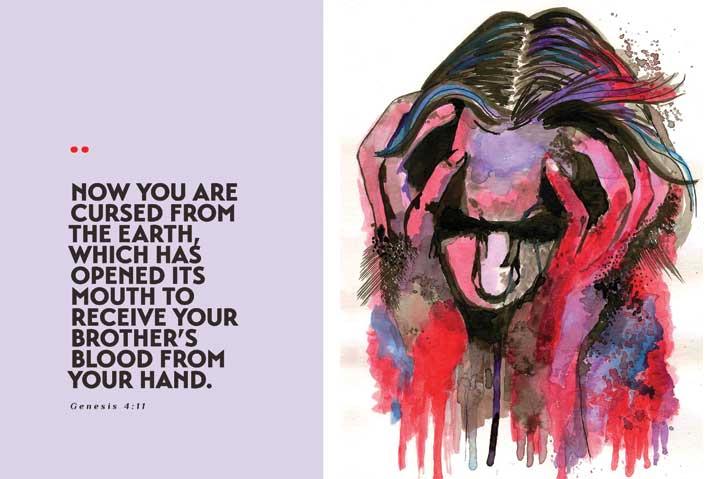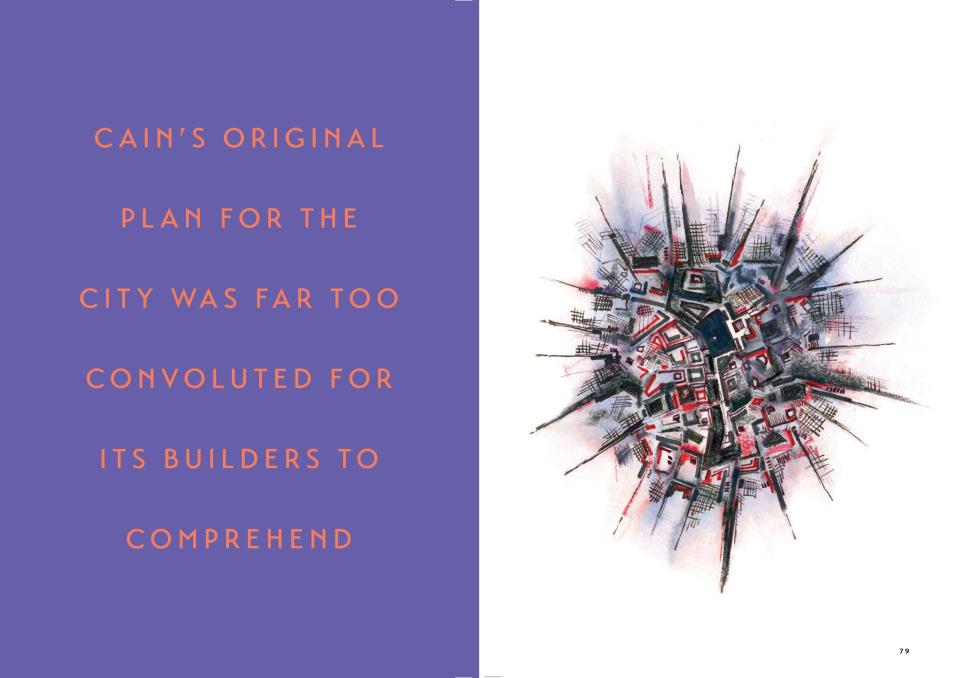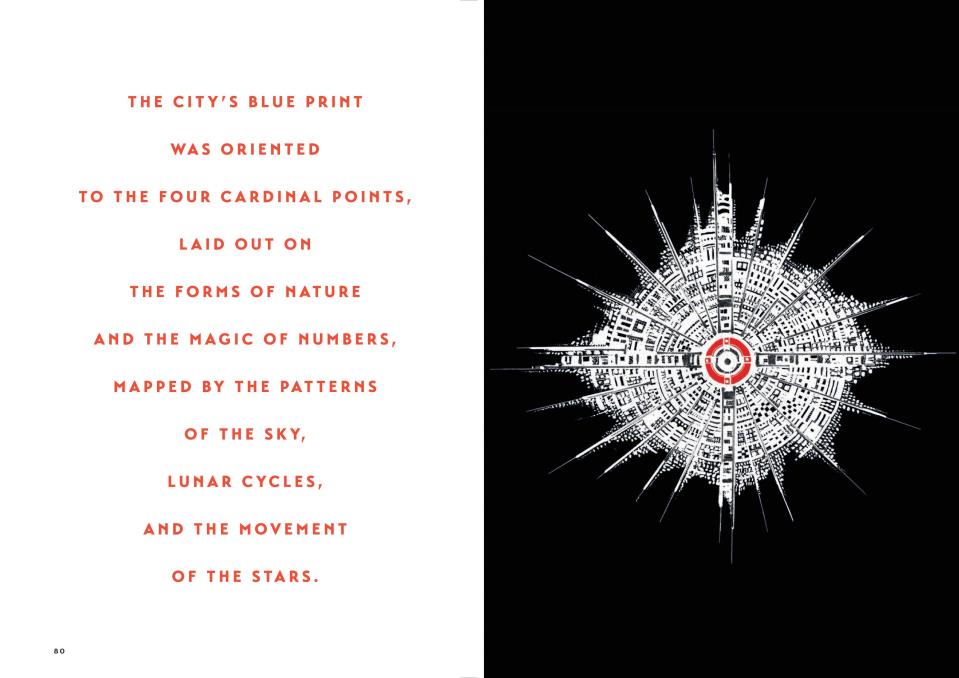Richard England's latest creation Cain: Prose - Poetry is a bijou work of art and literature. Printed in mostly red, white, black and occasionally a subdued lilac, full of beautifully laid out poetry with illustrations by his grand daughter, Christina Darmanin, it is certainly not the kind of book you read in bed, or God forbid, having broken its spine take with you in a warm bath full of foam. As soon as I opened the packet handed to me by the postman (in itself an exciting event for what do I receive these days except bills?) I knew I had to treat this book with extra respect and keep it away from my grandchildren.

Prof. England, the great chameleon with an undiminished work ethic, has produced another feast no doubt while multi tasking in his studio, designing a building while writing a poem. Wearing his thinking cap (does he ever remove it?) he has analysed Cain's character, Cain who murdered his brother Abel; Cain to whom we never gave a second thought at our doctrine lessons. He was the eldest son of Adam and Eve and a very Bad Boy. To me, as a young girl, Cain was a spent force and destined for Hell, like the Unknown Communist of whom we carried a picture in the form of a silhouette in our prayer books. We were asked to pray for his conversion which we did. At least I did. Cain needed conversion too but he was never mentioned.

But in his latest book Richard England makes us sit up. There is more to Cain than we had concluded as children. The author argues "that he should also be remembered as the first-born of humanity, the first agriculturalist, the first architect, and the first to cry out to God with a prayer and plea for mercy."
After slowly reading this work, once, twice, Cain has become more real to me, and I sympathise with him a great deal more than I did in my schooldays.


But let's dispose of the preliminaries first. The Concept, Text and Layout of this book as well as the City of Enoch drawings are by Professor England. Enoch is the city built by Cain and which he named after his son. It was destroyed in the flood. The illustrations are by his grand daughter Christina Darmanin. Maria De Gabriele is responsible for graphic design. The Introduction, The Making of the City is by none other than Prof. Ian Ritchie "who leads one of the world's most thoughtful, original and influential architectural practices and so on. He writes: "I admire Richard's seeing eye, expressed through his graphic penmanship and his mind's eye, revealed through the imaginary worlds he portrays which, when here combined, create the fabulous tour de force of Enoch, intriguing and hauntingly beautiful."


Professor Peter Vassallo, Professor of English and Comparative Literature at the University of Malta, and so much more and who needs no introduction wrote the Epilogue. "In Cain Richard England has performed a splendid feat enabling the contemporary reader to inhabit the primordial past as if it were a recent occurrence." So very true.
I love the quotes used throughout the book: "God the first garden made, and the first city, Cain." Abraham Cowley. Then there is Thomas De Quincey's: "As inventor of murder, father of arts, Cain must have been a first rate genius." There is Cain's desperation and a quote from Genesis: "My punishment is greater than that I can bear." How many of us have not cried out to heaven protesting at one of God's custard pies? Pope John XXIII, too, had something to say about Cain: "The Mark of Cain is stamped upon our foreheads." Sadly. And Ann Lamott's "Cain is still killing Abel," which is so painfully true.
Professor England's writing, his use of language, his poetry, the depth of thought combined with the illustrations and design together have created another chef d'oeuvre . His writing contains so many truisms, so elegantly put. Often one has to stop and reflect. This is not an easy book to read.
I've just been listening to Professor England's interview on Viking TV by Alastair Miller. In this excellent interview he tells us that Cain was also the first to commit incest as he married his sister, although we don't know where she came from. He is also the first to speak to God as when Adam and Eve were banished from Eden they left in silence. He comments that perhaps Cain killed Abel because the latter's sheep had trampled his crops.
This is not a book that can be described. It is a book to be experienced; sipped slowly, like a very special wine. Cain, who never existed, is brought alive by Richard England and I have forgiven him.